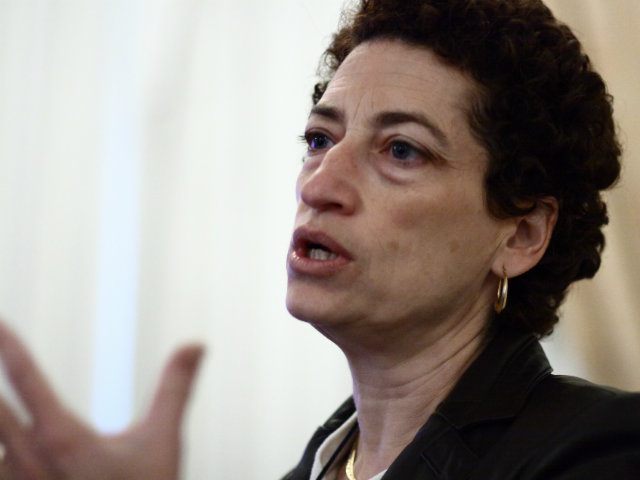Even if you’ve never heard of Naomi Oreskes you’ll know her pet theory. It’s the one that says that a handful of contrarian, “denier” scientists in the pay of Big Oil are skewing the debate on global warming by deliberately misrepresenting the science, just like they did with tobacco smoking, acid rain and the hole in the ozone layer.
This was the thesis of her 2010 book Merchants of Doubt, whose film version was all set to be one of this year’s biggest flops, till tragically it was overtaken last week by a movie about an institution even more corrupt than the IPCC – the $30 million FIFA hagiography United Passions which made just $918 in its opening weekend.
Merchants of Doubt is complete tosh, of course. But that hasn’t stopped the usual suspects from citing it ad nauseam in order to support their conspiracy theories about “anti-science” conservatives lying for political and material ends. After all, Naomi must be a serious person: why else would she have been appointed Harvard’s Professor for the History of Science and Affiliated Professor of Earth and Planetary Sciences?
But Naomi has a dark secret. Well, a couple of them, actually. The first is that for an ardent saviour of the planet she seems oddly reluctant to adopt the hairshirt, low-carbon lifestyle she wants to inflict on everyone else.
Here’s a Tweet she sent from her favourite skiing resort last year.
Harvard, as Bishop Hill notes, is only a short 2362 mile hop to Salt Lake City, the main entry point to Utah where Naomi skis “a lot.” And hey, what’s the occasional, nearly-5000 mile round plane trip when you’re on the right side of the argument? Naomi’s absolute moral and environmental rectitude is, no doubt, what gives her confidence to make pronouncements like this one on the Pope’s Encyclical.
Naomi’s even darker secret, though, is that she used not to be this way. If you read her earliest work – from the period, cynics like me might argue, when she still maintained a shred of intellectual credibility – you could almost be reading the arguments of a fully-paid-up climate sceptic.
We know this thanks to reader Frederick Colbourne at the Bishop Hill blog, who has unearthed a paper she co-wrote in 1994, on the vital importance in science of not placing too much faith in models.
“A model, like a novel, may resonate with nature, but it is not a “real” thing. Like a novel, a model may be convincing it may “ring true” if it is consistent with our experience of the natural world. But just as we may wonder how much the characters in a novel are drawn from real life and how much is artifice, we might ask the same of a model: How much is based on observation and measurement of accessible phenomena, how much is based on informed judgment, and how much is convenience? Fundamentally, the reason for modeling is a lack of full access, either in time or space, to the phenomena of interest. In areas where public policy and public safety are at stake, the burden is on the modeler to demonstrate the degree of correspondence between the model and the material world it seeks to represent and to delineate the limits of that correspondence.”
Then in 1999, she published a book on another of those cases frequently cited by sceptics in order to make their point that “consensus” has no place in science.
In the Rejection of Continental Drift, Oreskes told the story of how the scientific establishment closed ranks and stubbornly refused to accept a controversial theory on plate tectonics (advanced by, among others, Alfred Wegener) – even though it subsequently turned out to be true.
Oreskes’s sensible conclusion was that scientific institutions have a vested interest in enforcing consensus at the expense of new knowledge:
“And we are placing responsibility for making new knowledge in the hands of those who have the most old knowledge to unmake. The recognition of scientific expertise — the very stuff that enables scientists to build on prior results — at the same time makes scientific judgments inescapably personal and historical, undermining our deepest wishes for knowledge that might somehow be transcendent.”
Indeed. Which does rather invite the obvious question: if Naomi Oreskes was bright enough to grasp this at the beginning, what possible blinding revelation can have persuaded her to change her mind?
Or, to put it another way: what can have lured Naomi Oreskes from the ill-funded, vilified, and often tenure-free world of scepticism to the richly-well-paid, jet-setting, self-congratulatory, prize-abundant, professorship-guaranteeing realm of climate change alarmism?
Have to say, I’m stumped. Perhaps we should launch some Fermat’s-Last-Theorem-style prize in order to help us solve this near-impossible conundrum.

COMMENTS
Please let us know if you're having issues with commenting.